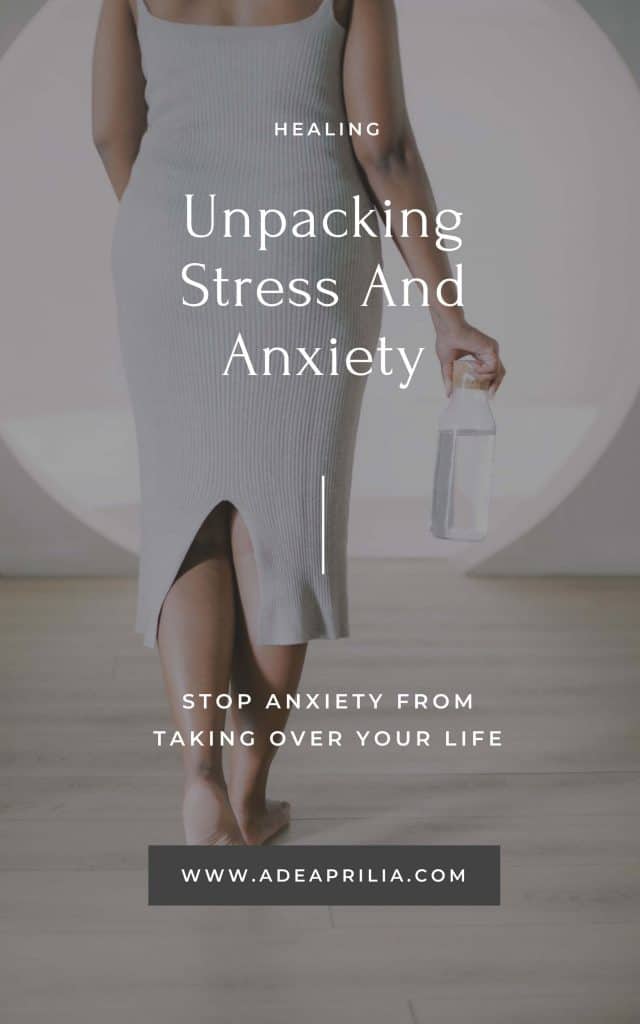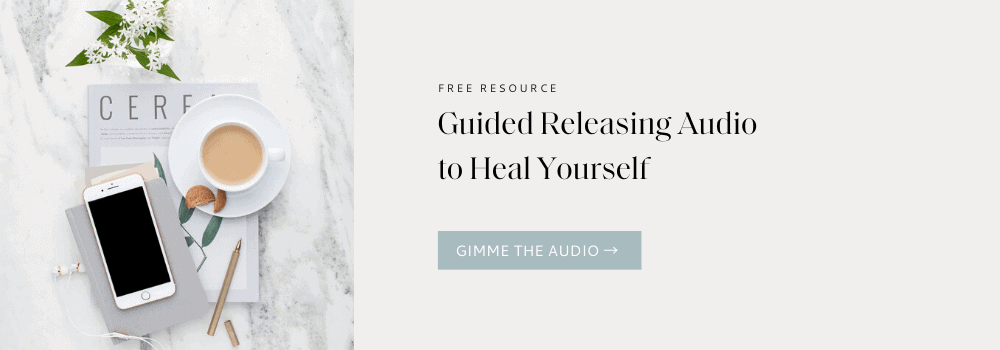
Last Updated on September 5, 2024 by Ade Aprilia
This post may contain affiliate links. If you make a purchase, I’ll receive a commission. Win-win. Disclosure
There are many possible causes of stress and anxiety. Some people may be more prone to these conditions due to their genes or family history. Others may have experienced traumatic events in their lives that have left them feeling anxious or stressed. Still, others may simply have a naturally anxious personality.
Whatever the cause, it’s important to remember that you’re not alone. Millions of people suffer from stress and anxiety every day. But there are ways to manage these conditions and live a happy, healthy life. These methods can vary, from exposure therapy to learning to de-stress through healthy methods, all the way up to using a service dog for PTSD to help you feel supported in public settings.
One essential insight to remember? If you’re struggling with stress or anxiety, you are not alone.
Here are some possible causes to explore:
1. Family History
If your parents or grandparents suffered from anxiety or depression, you might be more likely to experience these conditions as well. This is due to both genetic and environmental factors. If mental illness runs in your family, you may be more likely to develop it yourself.
2. Traumatic Experiences
If you’ve experienced a traumatic event, such as a natural disaster, the death of a loved one, or sexual assault, you may be more likely to develop stress or anxiety. These conditions can also be caused by long-term exposure to stressful situations, such as living in a war zone or being the victim of domestic violence. It’s so important to look into PTSD treatment (as there are various methods of treatment) because trauma just doesn’t go away, and time doesn’t heal this wound either.
3. Anxiety Disorders
Anxiety disorders are a type of mental illness that can cause symptoms of anxiety and fear. There are many different types of anxiety disorders, including generalized anxiety disorder, social anxiety disorder, and panic disorder. If you have an anxiety disorder, you may be more likely to experience stress and anxiety.
4. Substance Abuse
Substance abuse can lead to or worsen stress and anxiety. This is because substances like alcohol and drugs can change the way your brain works, making it difficult to cope with stressors in a healthy way. If you’re struggling with substance abuse, it’s important to get help from a professional before your condition gets worse.
5. Poor Sleep
If you’re not getting enough sleep, you may be more likely to experience stress and anxiety. This is because sleep is crucial for our physical and mental health. When we don’t get enough sleep, our bodies and minds are not able to function properly. This can lead to a variety of health problems, including stress and anxiety.
If you allow your anxiety to take over your life, you will lose your sense of self-purpose and forget who you really are.
There are many ways to manage stress and anxiety. For example, some people find that exercise helps them to relax and de-stress. Others find that meditation or breathing exercises help to calm their minds and bodies. Still, others find that journaling or talking with a friend can be helpful in managing stress and anxiety.
READY TO LET GO OF FEAR AND ANXIETY FOR GOOD?
Check out my free guided audio to get started on how to release emotions painlessly on the spot!
Each person is different, so it is important to find what works best for you. If one method does not seem to be helping, try another. Do not be afraid to experiment until you find something that works for you.
Here are some ideas to get you started:
1. Exercise
Exercise is a great way to reduce stress and anxiety. It helps to release endorphins, which have mood-boosting effects. Exercise also helps to reduce tension in the body and improve sleep. If you are feeling stressed or anxious, try going for a walk, run, or bike ride.
2. Meditation
Meditation can help to calm the mind and ease anxiety. There are many different ways to meditate, so find one that works best for you. For example, you can try sitting in a comfortable position and focusing on your breath. Or, you can try listening to a guided meditation.
3. Breathing Exercises
Breathing exercises can also help to calm the mind and ease anxiety. For example, one simple breathing exercise is to breathe in for four counts and then breathe out for eight counts. This helps to slow down the heart rate and ease anxiety.
4. Journaling
Journaling can be a helpful way to manage stress and anxiety. Writing down your thoughts and feelings can help you to process them and understand them better. It can also be a therapeutic way to release emotions.
I’m excited to also let you know that I have teamed up with Journey app again to create my new coach program: Overcoming Anxiety.
Journey is a journaling app that keeps your private memories and supports you to create a healthier, happier mind. It allows you to record your daily events, dreams, secrets, and gratitude, and relive those moments.
The Journey App has more features than any other journaling app that can take out the true essence of writing a journal from within you.
You can read more about the app here.
5. Talking to a Friend
Sometimes, the best way to manage stress and anxiety is to talk to someone about it. Talking to a friend or family member can help you to feel supported and understood. They can also offer helpful advice or perspective.
6. Relaxation Techniques
There are many different relaxation techniques that can help to reduce stress and anxiety. For example, some people find that progressive muscle relaxation helps them to relax. This involves tensing and relaxing different muscle groups in the body. Other people find that guided imagery or visualization helps them to relax. This involves picturing a peaceful scene in your mind.
7. Get Plenty of Sleep
Sleep is important for overall health and well-being. It can also help to reduce stress and anxiety. Aim to get seven to eight hours of sleep each night. If you are having trouble sleeping, try some relaxation techniques before bedtime.
8. Eat a Healthy Diet
Eating a healthy diet can also help to reduce stress and anxiety. For example, eating plenty of fruits, vegetables, and whole grains can help to improve your mood and energy levels. Avoiding caffeine and sugar can also help to reduce anxiety. If you want to take the edge off, consider buying Delta 9 Gummies.
9. Take Time for Yourself
Make sure to take time for yourself each day. This can be time to do something you enjoy, such as reading, listening to music, or spending time outdoors. Taking some time for yourself can help you to relax and de-stress.
10. Talk To a Therapist
People who experience chronic stress or anxiety may have a number of different symptoms. These can include constantly feeling on edge, having difficulty sleeping, feeling irritable or angry, and struggling to concentrate. If you are experiencing any of these symptoms, it is important to speak to your doctor so they can help you find the best treatment options.
There are a number of different treatments available for stress and anxiety. Often, a combination of therapies is most effective. This may include medication, counseling, and relaxation techniques. Identifying the root cause of your stress or anxiety is also important so that you can take steps to avoid it in the future.
11. Releasing
Based on my personal experience, releasing or letting go using The Sedona Method is the most effective way to overcome anxiety.
We tend to push anxiety down and run away from emotions.
Those are the most common and most harmful things you can do with a feeling.
Anxiety is still there. You just ignore that. And it’s not helpful.
Our fears and doubts also make us defensive. When we are defensive, we are holding in mind what we don’t want, so that’s what we get.
As you release your defensiveness, you see solutions instead of problems. As you naturally hold in mind what you want, you’ll know how to be proactive and win every time.
5 Simple Steps to Let Go for Good Using The Sedona Method
- Focus on the issue you would like to feel better about. Allow yourself to feel whatever you are feeling in this moment.
- Ask yourself: “Could I allow myself to welcome, allow, or be present with the feeling?“
- Ask yourself: “Could I let this feeling go?“
- Ask yourself this simple question: “Would I let this feeling go?” In other words: Am I willing to let go?
- Ask yourself this simpler question: “When?” This is an invitation to just let it go NOW.
Repeat the preceding five steps as often as needed until you feel free of that particular feeling.
You may find yourself easily letting go. Remember that letting go is a decision you can make any time you choose.
When you feel your anxiety or fear acting up, simply ask yourself the easy-to-learn and easy-to-remember questions that make up the Sedona Method, and you will feel the tightness leaving your stomach, shoulders, and chest. In its place, you will feel warmth and relaxation.
You can easily break the patterns of thought and behavior that cause these feelings to reoccur. You will no longer feel tense. That’s why you can overcome anxiety for good.
The results are guaranteed! You can read about Scientific Evidence of the Sedona Method here.
You can also book private coaching with me here.
If you are feeling stressed or anxious, try one of these methods to help ease your symptoms. Remember, each person is different, so find what works best for you. Do not be afraid to experiment until you find something that helps.
Now you.
How did you deal with anxiety?
Let me know in the comment below.
SAVE THIS PIN!
Did you find this post useful, inspiring? Save THIS PIN to your board on Pinterest!
And please share this with anyone who needs it!





Leave a Reply